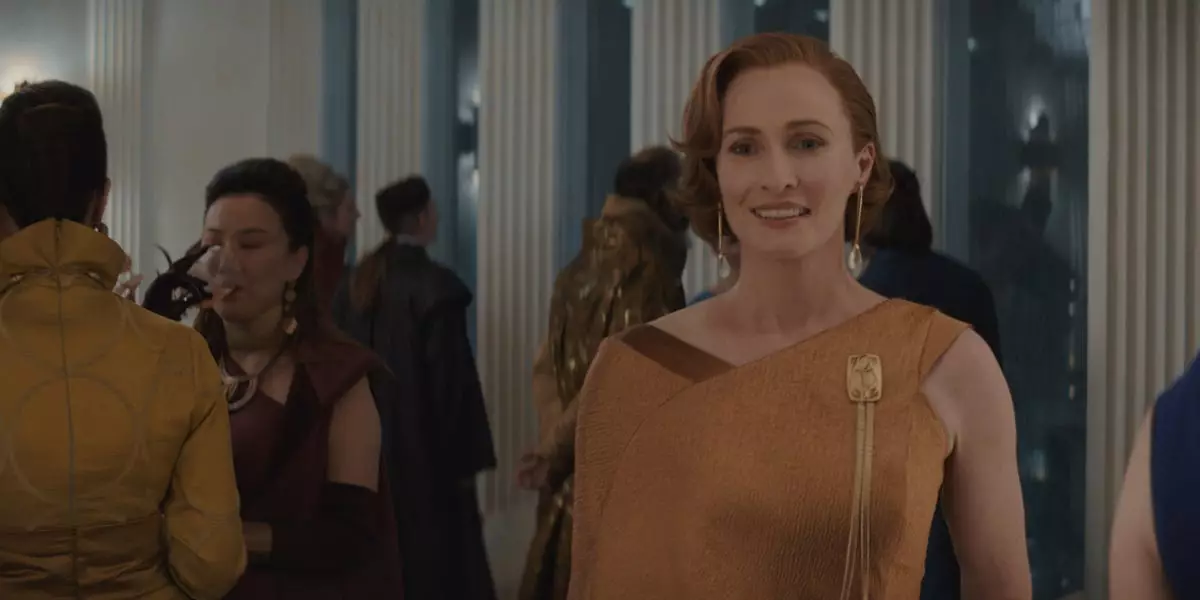As the highly anticipated second and final season of *Andor* graces Disney+, it embarks on a masterfully woven narrative that expands the lore of the Star Wars universe while grounding it in profoundly human experiences. Set against the backdrop of an authoritarian regime, the show delves into the life of Cassian Andor, portrayed incisively by Diego Luna. This series is not merely a side-quest in a cosmic saga; it’s an exploration of the grit, sacrifice, and moral ambiguities inherent in the fight for freedom.
Creator Tony Gilroy has deftly articulated the essence of *Andor*: a deeply engaging tale of revolution and transformation. The show stands out because it doesn’t just romanticize rebellion; it dissects its fundamental mechanics. Gilroy’s assertion that “the primary concern is where the resources come from” offers a refreshing perspective on rebellion that is often overlooked in mainstream narratives. In this world, rebellion is not a spontaneous act of courage, but a chess game played by people making troublesome choices with limited options.
Complex Characters in a Galactic Landscape
What distinguishes *Andor* is its intimate treatment of character development amidst the grandeur of the Star Wars universe. Characters like Mon Mothma, brought to life by Genevieve O’Reilly, illustrate this concept beautifully. O’Reilly’s remark that participating in this show felt like being in “Downton Abbey in Star Wars” encapsulates how the series juxtaposes the political intricacies of the rebellion with human relationships, obligations, and ethical dilemmas.
This delicate attention to interpersonal dynamics greatly enhances the storytelling’s emotional weight. When Cassian Andor and his allies, which include a diverse ensemble cast featuring Stellan Skarsgård and Denise Gough, grapple with the choices that mark the path to revolt, they become relatable figures. They are everyday people thrust into extraordinary situations, echoing a sentiment felt across diverse timelines beneath the shadow of oppressive power.
Everyone’s Story: A Revolution for All
One of the most commendable aspects of *Andor* is its inclusivity; it effectively dismantles the illusion that viewers must be encyclopedic fans of Star Wars to appreciate it. Gilroy’s comments serve as an open invitation to audiences new and old, emphasizing that the show is crafted to be universally accessible. This decision not only broadens its appeal but also signifies a significant turning point in how franchises can innovate within established universes.
The strength of *Andor* lies in its capability to draw in an audience by focusing on the lives of spies, politicians, and civilians as they navigate the chaotic landscape of resistance. This choice to highlight the everyday hero emphasizes that revolutions are not just led by iconic figures but also by those often overlooked in larger narratives. As viewers follow Cassian’s evolution, they also witness the transformation of a fragmented resistance into a collective force; a storyline relevant to modern political climates where grassroots movements are frequently the spark for change.
Pacing and Structure: A Strategic Approach
With season two unfolding over twelve episodes organized into four three-episode arcs, *Andor* employs a strategic pacing method that enhances tension and character development. Each arc acts as a mini-narrative that dives deep into significant timeframes leading up to *Rogue One*. Gilroy’s design choice to utilize time jumps is not merely a stylistic flourish; it allows for shifting arcs of emotional resonance. This method not only maintains a taut narrative pace but also invites viewers to engage deeply with each character’s journey.
As each plot twist unravels, the stakes become palpable. Gilroy aptly describes these moments as “the most intense three days each time,” indicating a deliberate focus on the short-lived, yet monumental, actions that define revolutionary sentiment. This tactic masterfully retains viewer interest and emotional investment, as audiences begin to understand the life-altering implications of seemingly “small” decisions in the grander scope of rebellion.
As we await the weekly rollouts of *Andor*, it becomes evident that the culmination of its storytelling is not just a plot resolution but an invitation to reflect on the meaning of resistance, sacrifice, and what it truly takes to fight for a better tomorrow.

